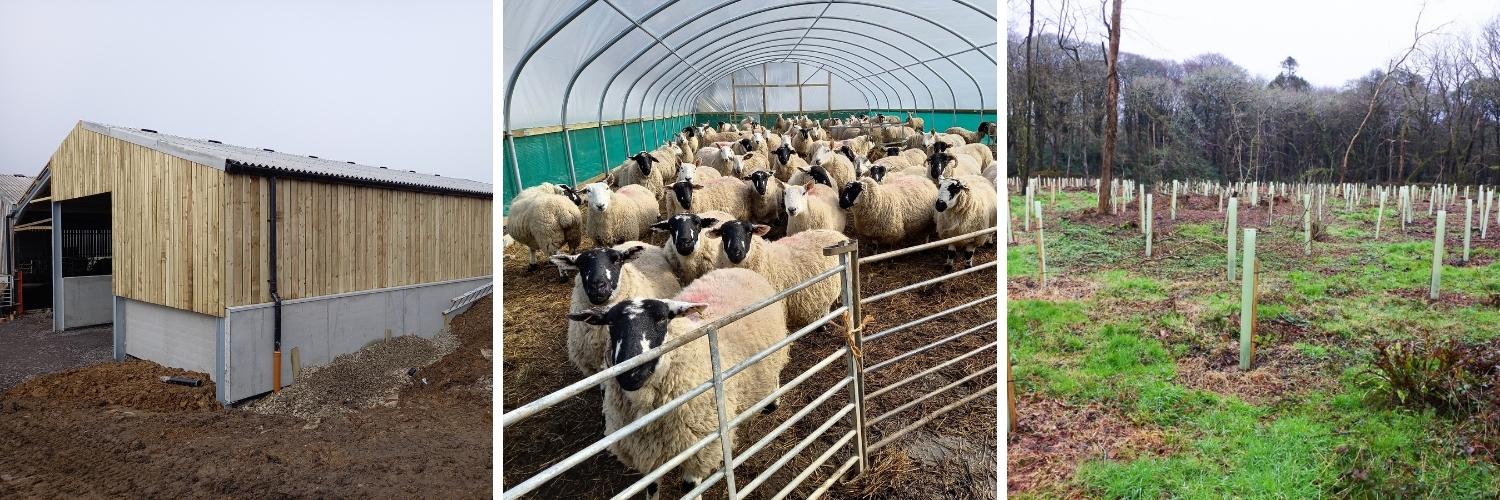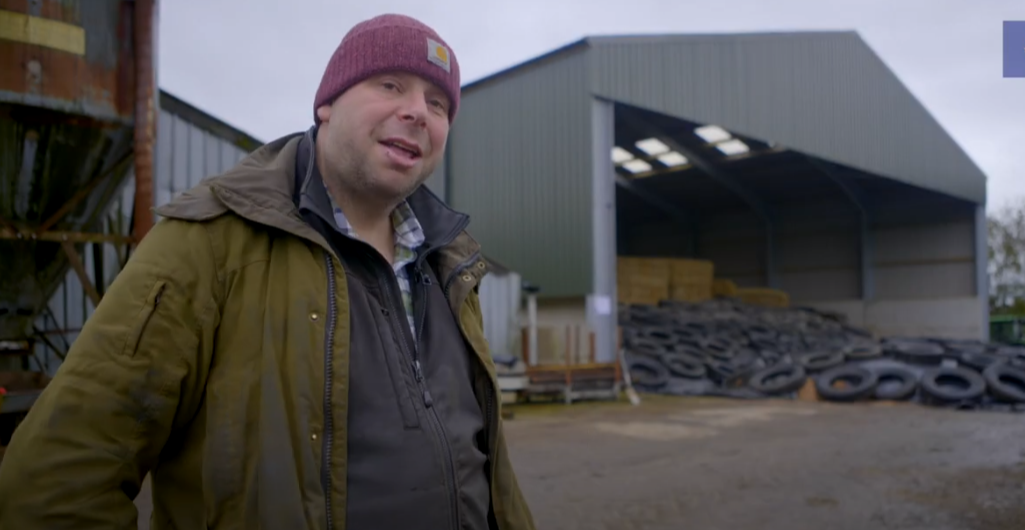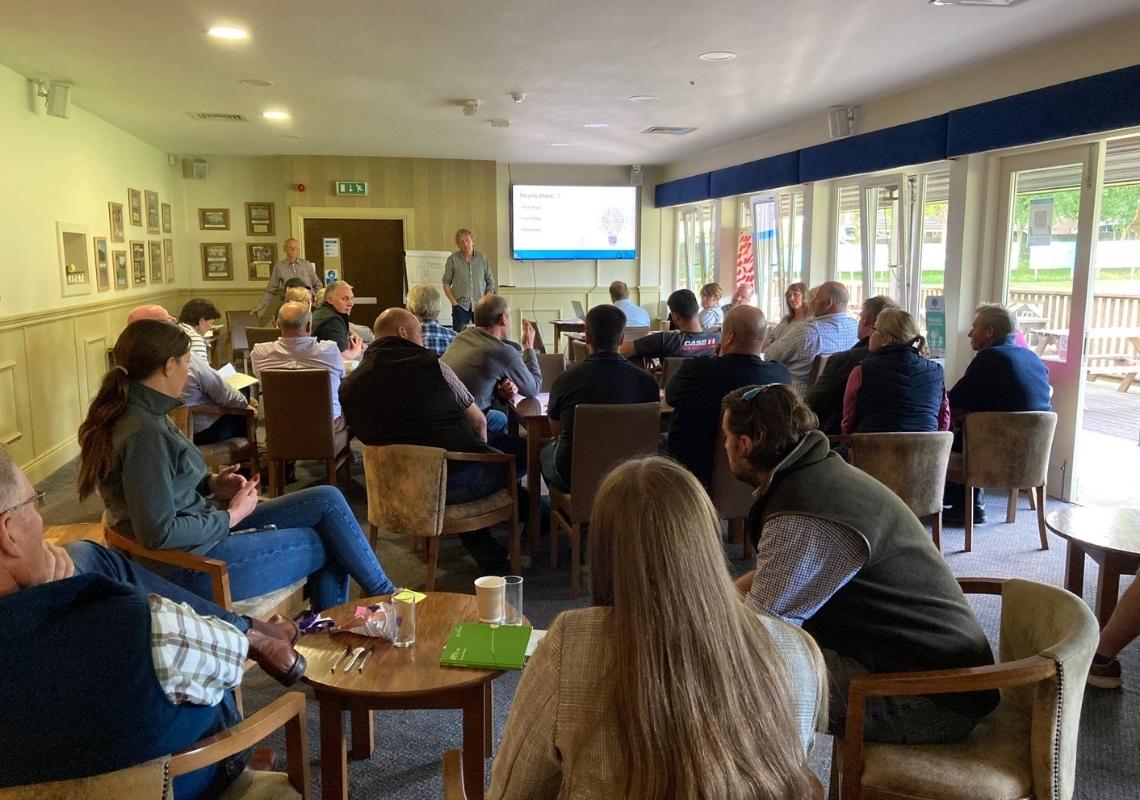Supporting Farmers In The Irwell Catchment To Take Practical Actions For Climate & Nature
Over the past few years, Greater Manchester has become more focused on climate action and how we can work together to create a greener future. Green jobs have grown, nature spaces have thrived and the city of Manchester have set an ambitious target to become net zero by 2038, 12 years ahead of the Government’s target for the UK of 2050.
Despite many people exploring what various groups can do to tackle climate change, one group which often isn’t talked about is farmers.
With agriculture occupying approximately 70% of land in the UK it’s important to understand what the farming community can do, and in some cases are doing already, to help tackle climate change. Read on to discover how the Farms for Water project supported farmers in the Irwell catchment to farm more sustainably.

Can Farming Be Sustainable?
Despite its organic roots, agricultural processes have been developed over time to produce more goods to accommodate for our ever-growing population. To maximise crop potential, synthetic chemicals and gene manipulation have been increasingly used, leading to a more polluted natural environment.
Pollution from agricultural runoff is particularly damaging during the climate crisis as rivers become hotspots for greenhouse gasses. In fact, rivers and streams now release up to 3.9 billion tonnes of carbon each year.
Luckily, there is a new wave of sustainable farming practices being used, which redesign the global food system in order to maintain healthy soil, manage water wisely, encourage biodiversity and minimise pollution. Farmers are helping improve water quality by introducing measures like this.
Last year, we worked with farmers in Bolton and Blackburn on Farms for Water, a project made possible thanks to funding from the Water Environment Grant (WEG). The aim of the Farms for Water project was to improve the water quality of the River Irwell, which in turn would benefit local wildlife and reduce the risk of flooding to residents who lived further into the catchment.
Meet the farmers making a difference
Craig Mercer of Willows Farm used funding from the Farms for Water project to create a more secure silage store. As a result, Craig’s silage is now less open to the elements. When it rains, dirty water is trapped by the clamp and safe, clean rainwater can run off into the nearby brook.
Willows Farm also introduced a fenced off area near Wheatsheaf Brook, where trees and shrubs can grow, undisturbed by livestock, improving the biodiversity of the farmland.

Craig explained how the benefits of planting on his farm go beyond biodiversity, discussing how trees help ‘slow the flow’ too:
“We planted some native hedge plants on the fence side, and we’ve also planted some trees. Livestock is excluded out of this patch now, and as most of the water drains down here, hopefully in time to come the roots from the trees and hedges will soak the water up.”
Robert Holden, another local farmer involved in the project, used the funding the purchase some new farm machinery.
“By using a slitter, we reduce the compaction of the soil, improve the water quality and reduce run off. I’ve seen the benefits; it’s dried the ground up and the grass has grown a lot quicker”
The Big Farm Tree Planting campaign
Groundwork aren’t the only organisation supporting farmers to make more sustainable choices. The National Farmers Union recently launched The Big Farm Tree Planting scheme, in an effort to provide farmers across the North West with 2,000 native trees.
These trees are available to pick up from 4 locations from this February following acceptance onto this scheme, which can be applied for on this page.
Adam Briggs, a NFU regional environment advisor, described how the scheme could be beneficial to the environment, stating:
“Trees are increasingly valued for their ability to store carbon and, in some circumstances, ‘slow the flow’ of water from the hills to lowland areas during wet weather events, so this joint initiative [with Woodland Trust and Lloyds Bank] provides our members with a great opportunity to replace ageing trees, add to existing hedgerows or to put non-productive areas of land to an alternative use.”
How can I secure funding for sustainable farming?
If you’re a farmer with an interest in creating a more sustainable farming future, here’s 3 things to consider:
- The Sustainable Farming Incentive
Last year, Defra published an update regarding the acceleration of large scale adoption of sustainable farming methods, with the goal to support at least 70% of eligible farms to take part by 2028. In 2022, this incentive focuses on sustainable soil management, with a long-term plan to deliver increased environmental, climate change and animal health and welfare outcomes. The way farmers will be able to deliver these sustainable solutions is through a series of grants, known as the Basic Payment Scheme. Applications for the Sustainable Farming Incentive open in spring, with first payments being sent by the end of 2022.
- Take part in EPIC
EPIC stands for ELM (Environmental Land Management) Partnership in the Irwell Catchment and is a project, delivered by Groundwork Greater Manchester, which explores policy questions in relation to the themes of collaboration, spatial prioritisation, advice and guidance and land management planning.
Want to join Craig, Robert, and a network of other farmers to explore this topic? Email epic@groundwork.org.uk to find out more.

- Join the Nature Friendly Farming Network
This farmer’s run organisation operates across the UK with members sharing a passion for sustainable farming and nature. They seek to secure positive changes in policy and influence how farming is perceived by the public. More info: https://www.nffn.org.uk/
